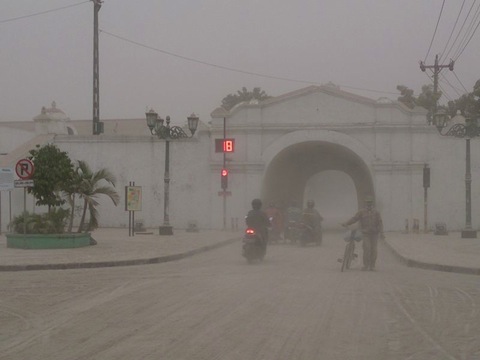 When the Indonesian government looks back upon its handling of Mount Kelud’s latest eruption, it may lament its failure to heed a clue from the animal kingdom. Two days before the volcano began to belch its noxious contents, the critters that inhabited its slopes seemed to know that something was up:
When the Indonesian government looks back upon its handling of Mount Kelud’s latest eruption, it may lament its failure to heed a clue from the animal kingdom. Two days before the volcano began to belch its noxious contents, the critters that inhabited its slopes seemed to know that something was up:
“We received reports from people who claimed to see deer and other animals running out of the forest toward their house,” Sakirman, a former Pandansari village chief, said, adding that the occurrence was significant since the volcano is already on a level-three alert.
Hafi Lufi, head of the Malang Disaster Mitigation Agency (BPBD), said that such an exodus was usually caused by gases rising up from the mountain.
“Smoke may have already been released, so animals have run away from the mountain,” he said. “We’ve prepared masks and evacuation points.”
The BPDB did not, however, order a full evacuation at that point in time—a decision that may well have cost lives in the long run:
Despite the level-three warning, the provincial BPBD has yet to evacuate the 32,000 residents possibly in danger.
“We don’t want to make them panic,” Hafi said. “The status has been raised, but the observation results haven’t shown that an evacuation is urgent.”
I’m sympathetic to this hesitancy to follow the animals’ lead, as our furry compatriots are too often credited with better instincts than they really have. (I’m thinking here of the myth that dogs and horses can predict earthquakes.) But there’s a solid logic to the purported ability of animals to detect volcanic eruptions—their noses are likely more reliable sensors for gas emissions than artificial monitors, especially when those monitors are lightly managed. Perhaps the fleeing deer need to be taken more seriously from here on out.
Follow all the latest Mount Kelud developments here. And pity the volcano’s poor webcam, which gave up the ghost quite early in the process; can’t someone out there develop a protective casing?


Like gas stations in rural Texas after 10 pm, comments are closed.